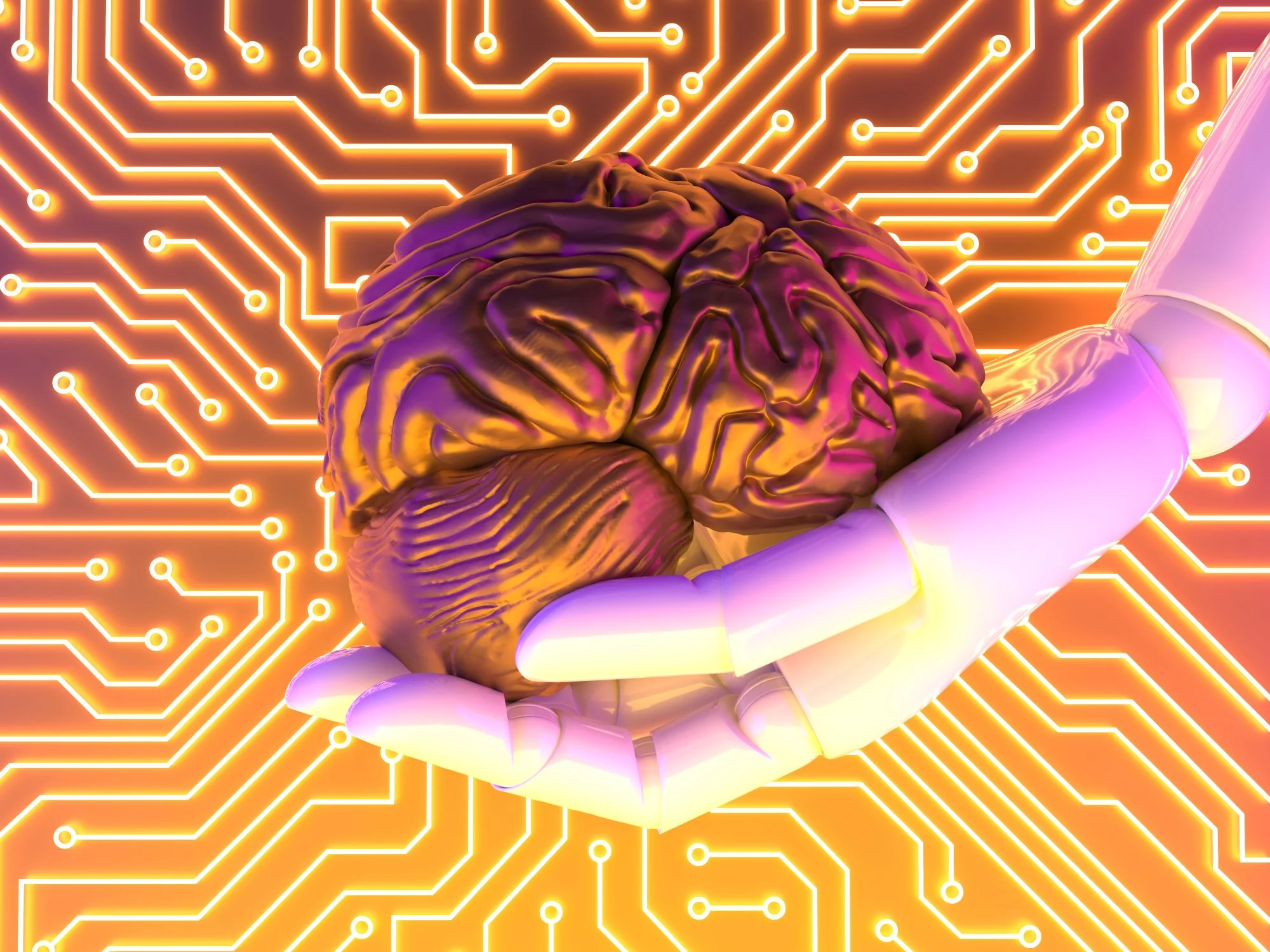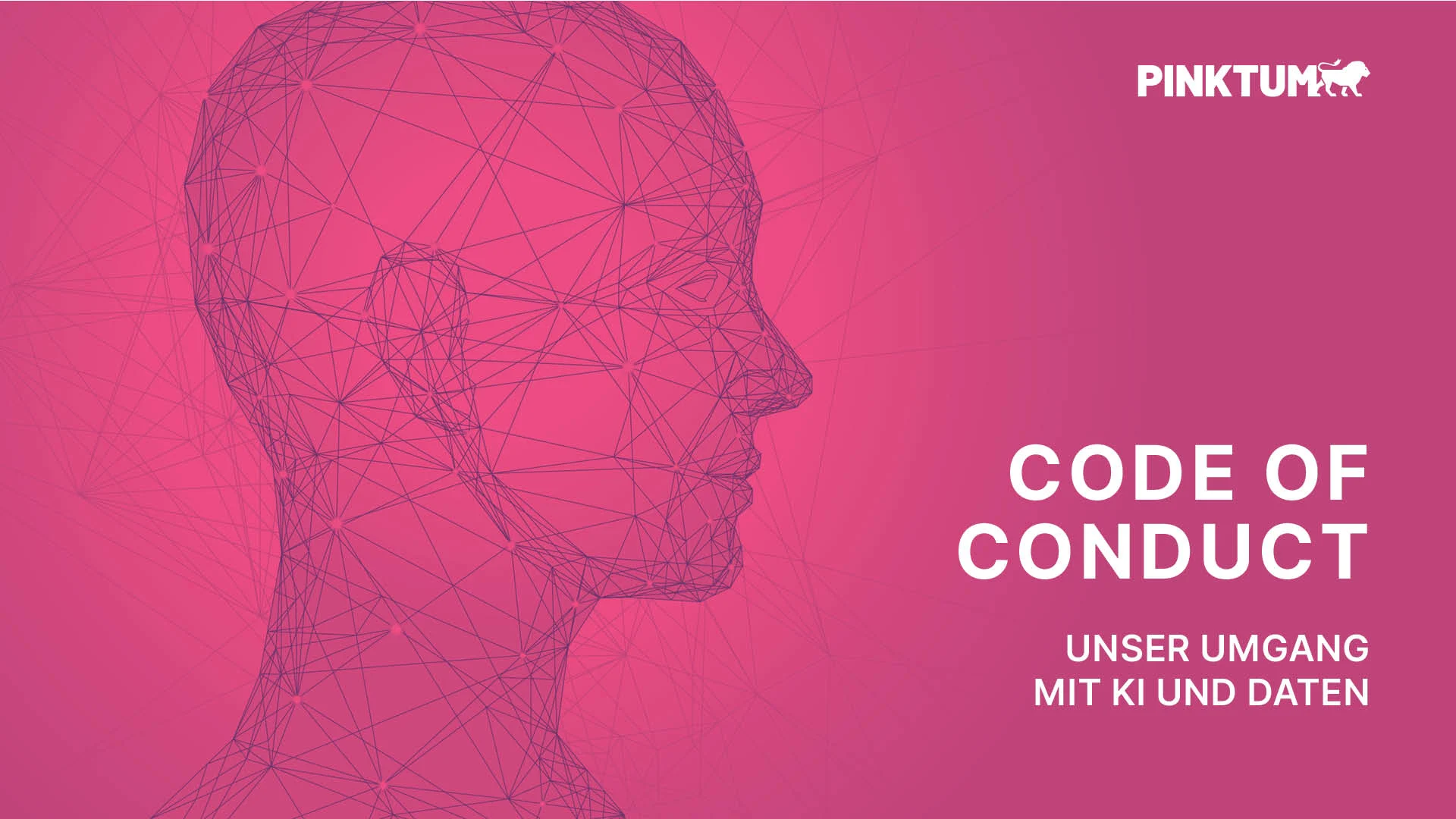More than just legally compliant: With our AI ethics guidelines, the learner is our focus
What was recently still a far-off dream has become possible - seemingly overnight - thanks to the integration of artificial intelligence. Hello future technology! But privacy concerns often accompany the fascination for self-learning AI tools like ChatGPT. This is because the ability to make automated decisions increases the risk of violating personal rights and freedoms. As a digital HR development company, we have therefore recognized the need to establish ethical principles for dealing with AI and data. In this article, you'll learn how the use of AI will optimize our learning products in the future and what's behind our AI ethics guidelines.

Flash Knowledge on Artificial Intelligence, Ethics and Data
Artificial intelligence refers to a machine's ability to mimic human competencies such as reasoning, learning, and planning. Many AI technologies have been around for more than 50 years, but the availability of large amounts of data, in particular, has led to pioneering breakthroughs in AI. Based on collected and structured user data, AI systems can adapt their actions by analyzing the consequences of previous actions and reacting to them - in short, they "learn." Wow! This makes an unprecedented level of personalization, individualization and increased efficiency in everyday life possible.
At the same time, new technologies are creating new conflicts: Between AI use and data protection and between the competitiveness of companies and the security of their customers.
Here, the concerns relate primarily to whether the processing of personal data is compatible with the basic principles of the GDPR (General Data Protection Regulation) and whether the data subjects are sufficiently informed about what happens to their data. Ultimately, we also deal with ethical issues. AI ethics is about moral principles for the use of AI in accordance with societal values and norms.

Personalized learning - with AI on top we make it possible!
As a leading provider of sustainable soft skills development in companies, we have been pursuing the same goal for over ten years: We promote personal development through innovative digital learning experiences. To do this, we work with experts in psychology, pedagogy, and continuing education to design our e-training courses. In addition, our research constantly provides new insights for optimized personnel development. With the integration of AI systems, we can take our services to a new level and personalize learning paths. In doing so, we embrace the zeitgeist and offer customized training modules that fit your employees, yourself and your lifestyle.
Joachim Pawlik, CEO of PINKTUM explains: "In the stressful everyday working world, the necessary developments of new competencies will only be achievable if we support each individual specifically with the content and methods relevant to them. AI enables us to have the high level of customization that will allow us to train people fast enough for their new jobs in the future."
This means that modules adapt precisely to the needs of the individual learner, as determined by usage behavior. Thus, data must be collected and analyzed for pattern recognition. Even before the integration of AI systems, we were concerned with what was legally compliant and what ethical guidelines were necessary for dealing with AI and data.

Our AI ethics guidelines for secure applications and data
There are sets of rules that PINKTUM must adhere to, such as the General Data Protection Regulation or the European AI Act. In addition, we have defined our own AI ethics guidelines. Our development, implementation and use of AI systems are guided by ethical and social considerations. After all, as a workforce development company, we believe that we have a responsibility to use AI technology for the benefit of personal development and community. That is, we always use data with the goal of better understanding and advancing the learner. Specifically, we adhere to the following guidelines for dealing with artificial intelligence and data:
Safety We ensure that data is always and exclusively handled securely, confidentially and, whenever possible, anonymously. We have conducted a risk analysis for every process which uses AI.
Transparency: Following the principle of "Explainable AI," we clearly explain how we integrate AI and data into our processes to our customers and employees.
Orientation: We always act in accordance with the values defined in our code of conduct and the ethical principles of the European Commission. On this basis, we use data and AI to improve the quality and efficiency of our work and thus for the benefit of our customers.
Data minimization: We follow the principle of data minimization and collect, store and only use the data that is absolutely necessary for the optimal support of our learners. We securely delete or completely anonymize data that no longer serves this purpose.
Fairness: We ensure that our AI models are fair and unbiased and do not produce discriminatory results.
Privacy: Our standard is the highest level of privacy. We work with protocols and access rights to define who can see and process what level of data.
Rule conformity: It goes without saying that we comply with the laws and regulations that apply in the EU and in the respective country. We use data and AI in a GDPR-compliant manner.
Continuing education: AI is always evolving - and so are we. We remain up-to-date in training our employees to ensure ethical use of AI and data.
Stability: The robustness of our systems is paramount. We test the AI systems for stability and reliability.
Up-to-dateness: To ensure we maintain the highest ethical standards, we are always reviewing and updating our data and AI policies.
Next Level E-Training and AI Ethics in Practice
Our Code of Conduct helps us use AI and data in accordance with societal values and legal standards. But where and how do these data points actually arise in AI-assisted learning specifically? PINKTUM already uses artificial intelligence to evaluate the learning type with its competencies, motives and relevant personality facets. In addition, different factors such as learning habits, challenges at work or the current mood are taken into account for new learning opportunities. For this purpose, systems for speech or image recognition, for example, are used within the framework of our AI ethics guidelines. Wherever possible, the data generated during response analysis is collected anonymously in a closed system, evaluated and processed in compliance with the GDPR.
Christian Hencke, VP Digital Strategy and AI at PINKTUM, saya: "Technology gives us the opportunity to finally implement what we have known about learning through research for a long time. However, we are aware of the dangers and reservations and therefore are greatly interested in communicating how we use artificial intelligence and data in a comprehensible and completely open manner. This idea drives us to go far beyond what is required by law when it comes to data sensitivity."
Because as a leading provider of digital HR development, we are convinced that the increasing learning requirements for employees can only be met in the medium-term future with the help of artificial intelligence. But we also believe that this works in accordance with ethical principles. And we demonstrate it.

You have questions? We answer.
What is an AI ethics guide?
Basically, it's a code of conduct for dealing with artificial intelligence and data. This contains behavioral guidelines that apply to all employees. At PINKTUM, we thus want to ensure that the use of AI and data is not only legally correct, but also guided by ethical and social aspects. We have defined ten rules in our code of conduct. Among them you will find, for example, the issues of data economy and privacy.
What does GDPR compliant actually mean?
"GDPR" stands for "General Data Protection Regulation". GDPR compliance regulates the flow of EU data on the internet. The GDPR was developed to protect personal data. No data may be collected or processed without the user's consent. This applies not only to companies, but also to institutions such as schools.

Which AI systems does PINKTUM use?
To personalize the learning experience, we use artificial intelligence. Among other things, we use tools for speech and image recognition and for reaction analysis. With the help of such AI applications, "behavioral data" can be collected in the background. Based on this pattern recognition, the learning journey is precisely tailored to the individual learner. When using AI systems, we always keep our AI ethics guidelines in mind.
Why are e-learnings from PINKTUM so unique?
Our e-learnings promote intercultural, barrier-free and personal development. With new soft skills, we take employees to the next level and this benefits the entire company. As part of our digital learning, customers have access to an international award-winning online library of approx. 600 video-based, interactive e-trainings, which are available in several culturally adapted languages.
